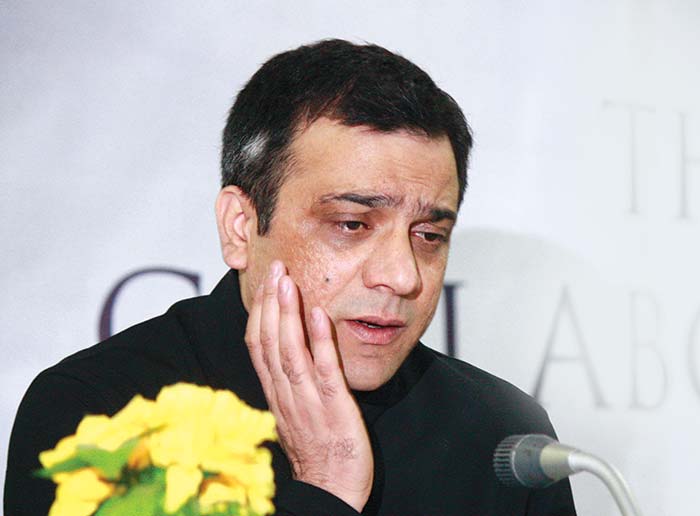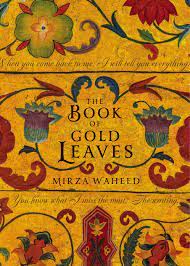[ad_1]
Mirza Waheed’s 2014 novel tells the story of love and hope in times of war, writes Muskan Fatima

Mirza Waheed’s novel The Book of Gold Leaves is a story about Kashmir, about the spirit of resilience that makes natives to cling the hope in wake of challenges.
Mirza is a Kashmir-born, British storyteller who quit a promising journalistic career to become a full-time novelist. His debut novel The Collaborator was an international bestseller and was shortlisted for The Guardian First Book Award in 2011. The Book of Gold Leaves, published in 2014 was shortlisted for the 2015 Folio Prize and the 2016 DSC Prize for South Asian Literature.
Set In the 1990s
The Book of Gold Leaves is set in the 1990s war-torn Kashmir and at it captures a love story of devastating beauty at a time of political strife in Kashmir. Faiz is a Shia papier-machie artist who supports his family by painting pencil boxes. His artworks are sold overseas in countries where he cannot travel. He is a dreamer too and often dreams about creating a masterpiece. Roohi, the other lead character in Mirza’s book is a young damsel who is a Sunni. She is a woman with dreams in her eyes and when her dreams are shattered she does not let her hopes die or her heart harden.
They knew each other as kids and are reunited as adults only to fall in love with an all-consuming intensity. The love they share is the kind of love that Shakespeare talked about – a love that is beyond all impediments and thus cannot be altered.
By no means, however, is their story a fairytale where a happy ending is awaited all along. Instead, it is a story where the heart is fragile and full of heartache and yet it chooses to be a rebel and love regardless of the consequences. The beauty of the book and the plot lies in the details of how the war tears their story apart and how they bravely face it in the hope that the war will end one day as it always does.
Times apart, the story is set in a space, where Shia-Sunni tensions have been part of history’s baggage. The storyteller ensures the love bloom, transcending the narrow sectarian divide. This is despite the fact that Faiz, the key character in the film, becomes a militant and is known as the “papier machie militant”.
Family Support
The family dynamics and history have also been woven with great delicacy. Farhat who is the little sister of Faiz shares a beautiful bond with Roohi. The bond is like that of sisterhood and comfort. While Faiz is away from home Farhat and Roohi become pillars of strength for each other.

The writing style is poignant and lyrical. There is incredible use of imagery and the prose has been written in such a way that it leaves the reader with a sense of catharsis.
The scent of home is spread throughout the book from the scenes set up in Khanqah to the water bodies described with incessant beauty. One can almost imagine themselves walking down the lanes in Habbakadal and gazing at the houseboats while on a Shikara ride.
There is a sense of melancholy felt throughout the novel which gives the sense that the book shares a personal connection with the author. In fact, the book cover carries a picture of Mirza’s late grandfather’s paper-machie artwork.
Communal Relations
One of the underlying themes that this book explores is the Hindu-Muslim relations in Kashmir. On TV screens and in political discourse, the relationship is often portrayed of a rivalry. Mirza not only describes the plight of Hindus who left their homes but also explores the ground reality of relations between Hindus and Muslims in Kashmir. He portrays with utmost delicacy how both communities have shared a history of utmost love and tolerance.
Just like in real life within one story lies multiple other stories waiting to be explored and understood. The side characters in the book carry within themselves a complexity of their own.
One such story which goes parallel to the love story of Faiz and Roohi is that of Shanta Koul, the Principal at Farhat’s school. Army barracks are being set up in the school and youngsters joining militancy has become common news. Shanta Koul is forced to watch as her life and the life of those around her are stripped of any stability that existed before the war and the turmoil.
Interestingly, Mirza skips indulging in who is at fault. Instead, he leaves it to the reader to form opinions and conclusions. He merely shows the aftermath of it all and does what storytellers must do- tells the story.
In Kashmir the silence is loud and the waiting is long. Although amidst all of it Mirza Waheed does not fail to slide in a glimmer of hope within the little moments of joy shared by the characters.
This book is a slice of life filled with spirituality, family history, love, longing, hope and in the midst of it all a feeling of home that Kashmir never fails to give.
(Muskan is a young intern with TheNewsCaravan.)
[ad_2]
#Golden #Leaves
( With inputs from : kashmirlife.net )